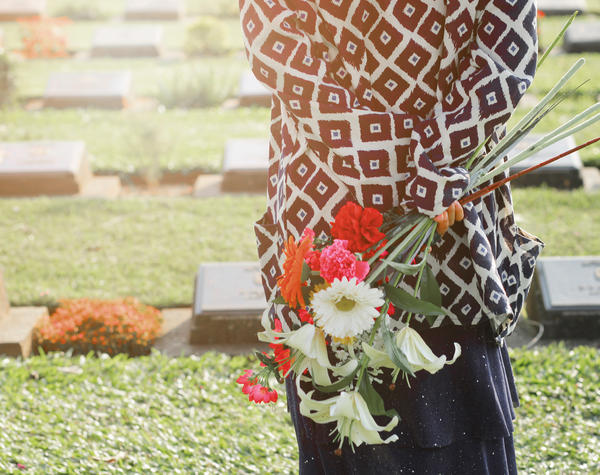In recent times, the funeral industry has seen rapid change in the way it operates. For over a hundred years, the industry in Australia has used a formulaic, cookie-cutter approach, leaving many disillusioned with the process.
Dr Philip Bachelor, course director for Cemetery Practice at Deakin University, has more than four decades of cemetery experience in Australia. He believes that change in the industry is not only inevitable but compulsory for those who want to survive the next four decades.
COVID-19 and the future of funerals
When Victoria was sent into a sharp lockdown in mid-March of 2020, businesses and industries were scrambling to adjust and rethink the way they normally functioned. This was no different for the funeral and cemetery industry. With funerals capped at a maximum of 10 people and restrictions imposed on those looking to travel interstate and internationally to grieve, Dr Bachelor says it was encouraging to see how creative and innovative the industry became when solutions had to be found.
‘Immediately we had all funeral services being videoed and streamed online for those overseas, interstate or unable to be there due to capacity limits,’ Dr Bachelor explains.
COVID restrictions, however, were not the first triggers to the evolution of funerals. Change in the industry, although slow and incremental, has been happening for the past couple of years.
‘In the past you would have a clergy that would read the church’s rituals and you might occasionally insert the name of the deceased but these days it's all about the person that we loved and we've lost, and they're central.’
Of course, this new focus on the individual has not always been the case.
One size does not fit all
Those outside of the industry might assume that funerals and cemeteries are the same everywhere you go. There is a coffin, people say some nice words about the deceased and then they are buried in a cemetery with a headstone. Cut and paste 10 times a day. That is obviously an oversimplification, but, according to Dr Bachelor, the funeral and cemetery industry did operate in this vein for many years.
‘In my early days of working for the largest burial operation in Australia, we were offending our clients left, right and centre,’ Dr Bachelor says.
‘We were culturally and emotionally insensitive and when I looked around, I very quickly learned that we were not alone and the whole industry needed to do a lot better.’
Dr Bachelor took it upon himself to do the first social research ever conducted in the industry and attempted to find out who the clients were demographically (age, sex, nationality), what they believed, where they were from culturally, and what their relationship to the deceased was. All in an attempt to improve the industry and create a better experience that catered to all people.
This mass collection and publication of data led to invitations to conferences and seminars, published books, and eventually a doctoral thesis.
A main tenant of the Graduate Certificate of Cemetery Practice is cultural traditions and how to be sensitive to other belief systems.
‘We look at the most significant religions and belief systems such as Christianity, (Catholic, Anglican, Orthodox and Protestant) and Hinduism, Buddhism, Islam, Judaism and traditional Australian Aboriginal beliefs. We also look at non-religious perspectives as well, and other cultural beliefs,’ Dr Bachelor says.
‘You've got to be open and ready to treat everyone without assumptions or bias.’
More than just a job
With about 2400 cemeteries in Australia making more than $500 million each year, end of life practices are big business and it’s vital that the people paying are understood and catered for.
A career in the cemetery industry is more than just a nine-to-five office job. It’s a commitment to people, culture, and respect. If you are looking to transform your work and the people you serve day in and day out, Deakin University’s Graduate Certificate of Cemetery Practice can help you achieve that goal.

